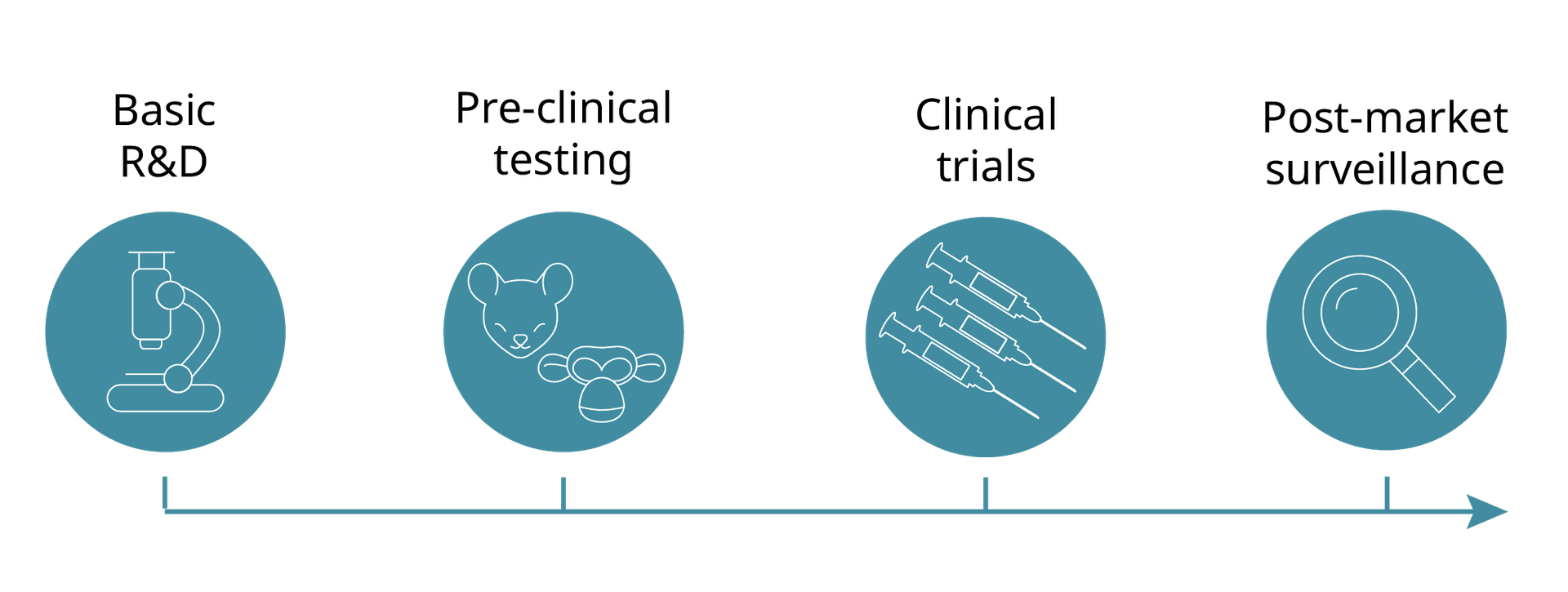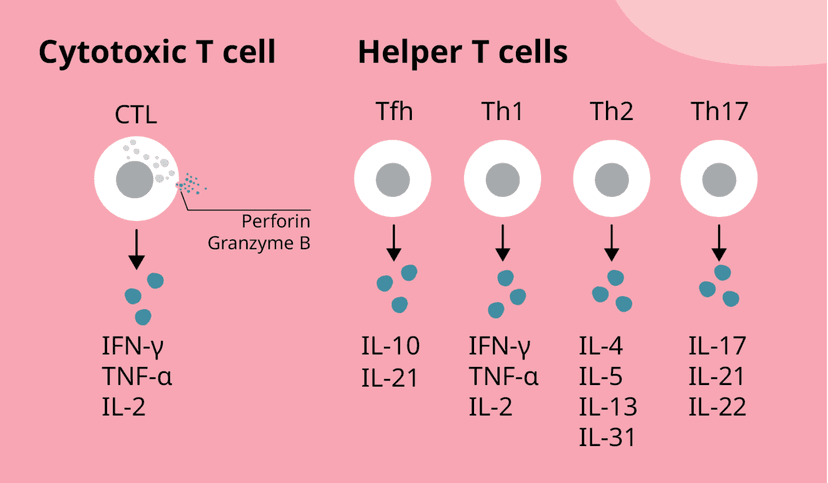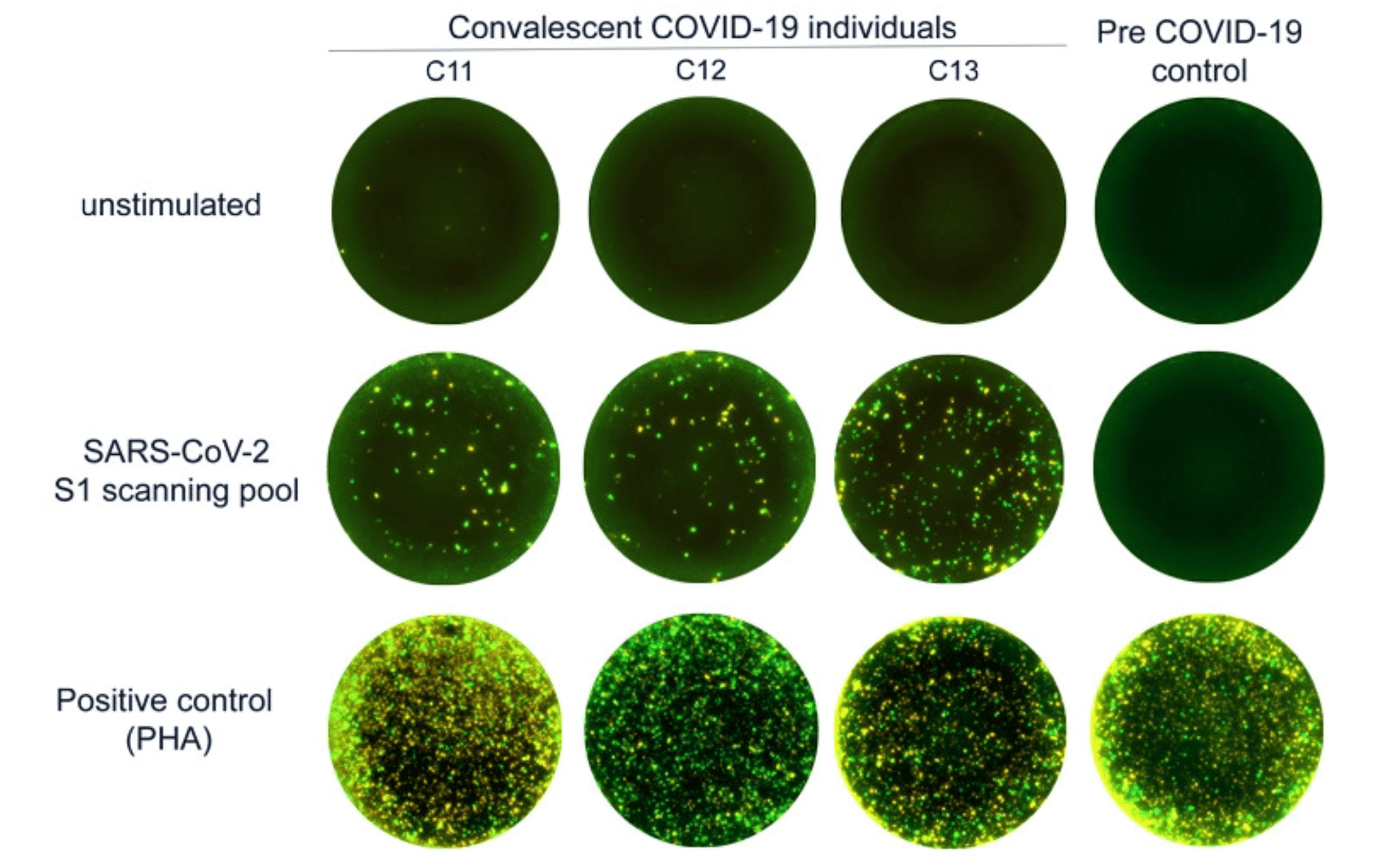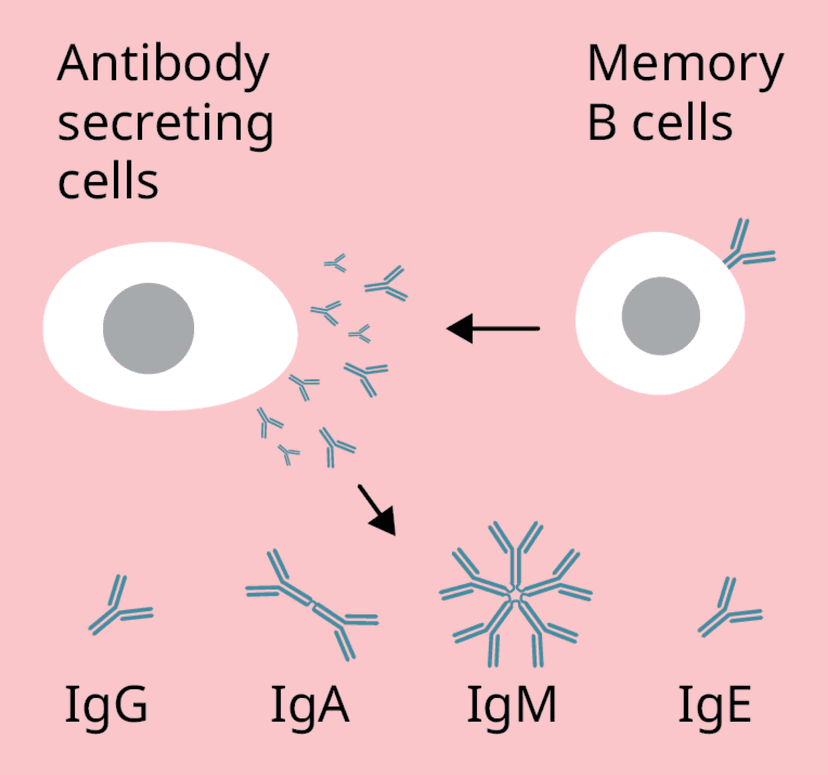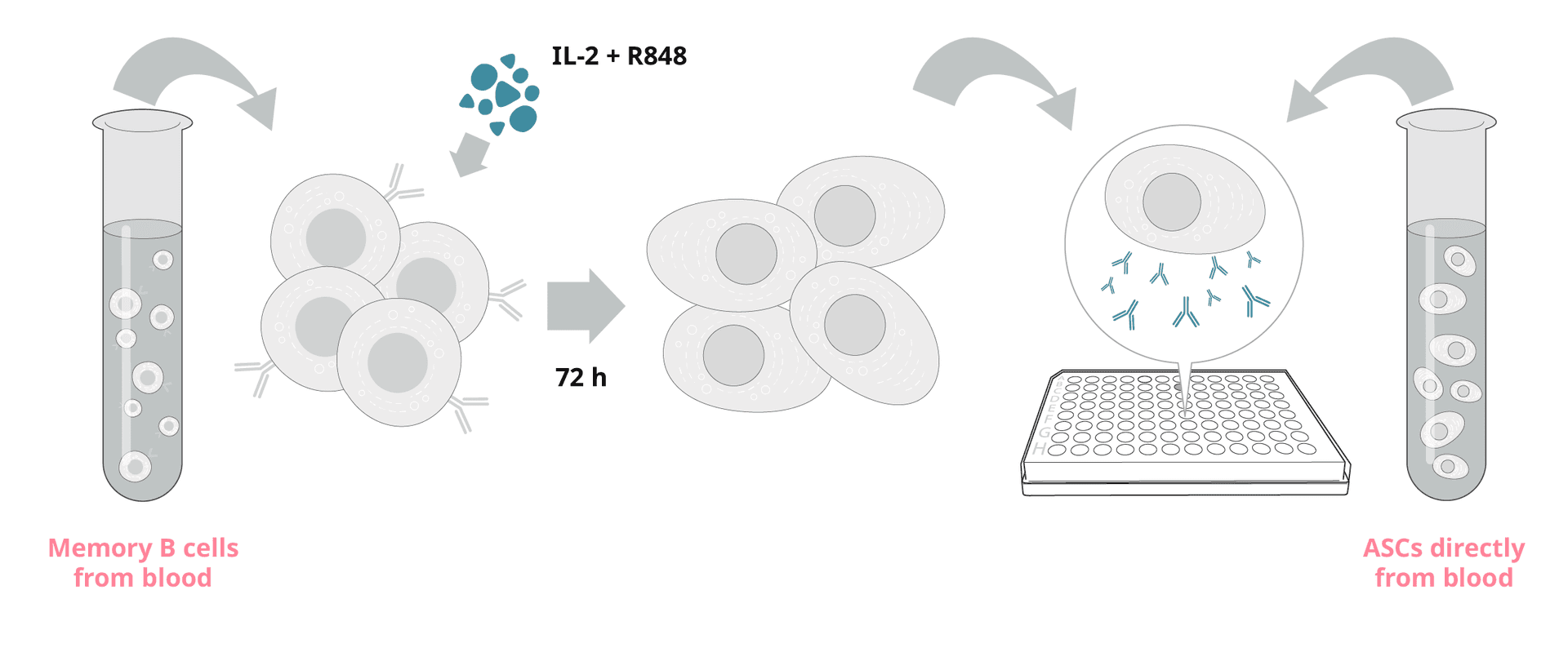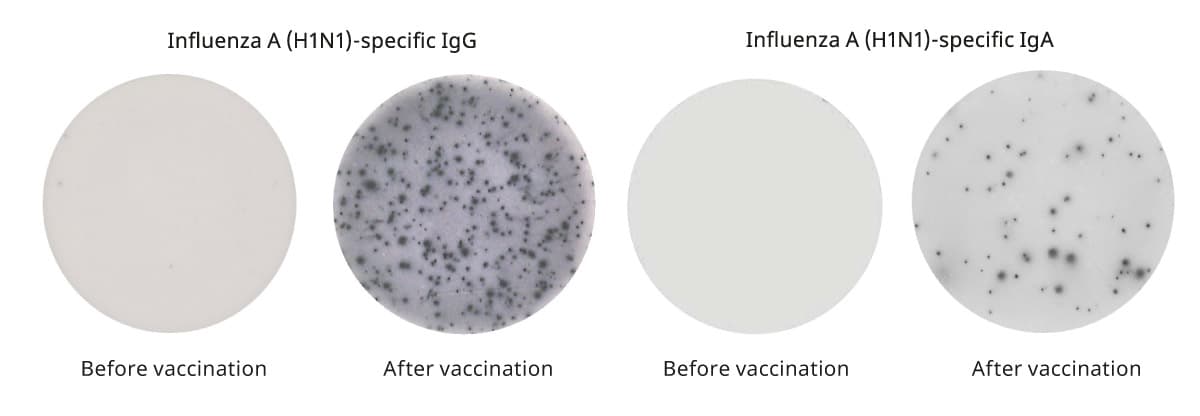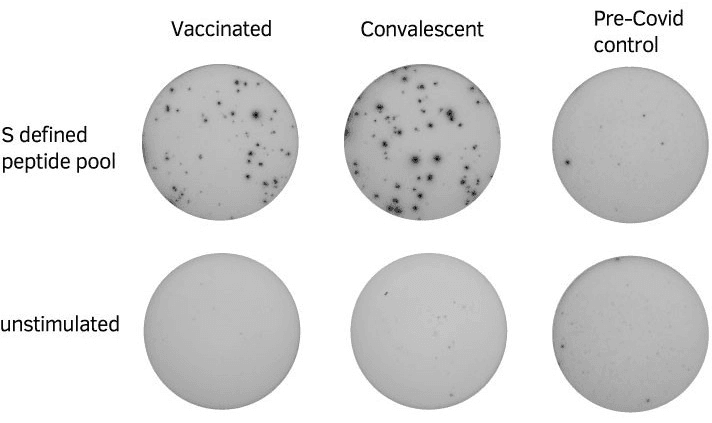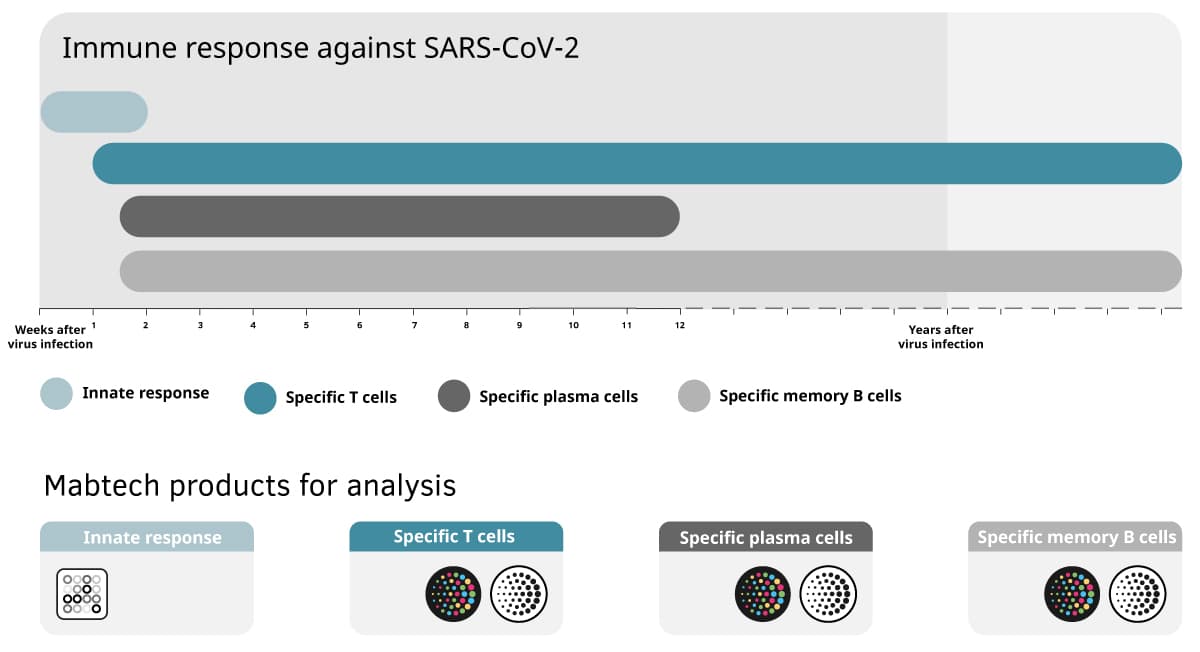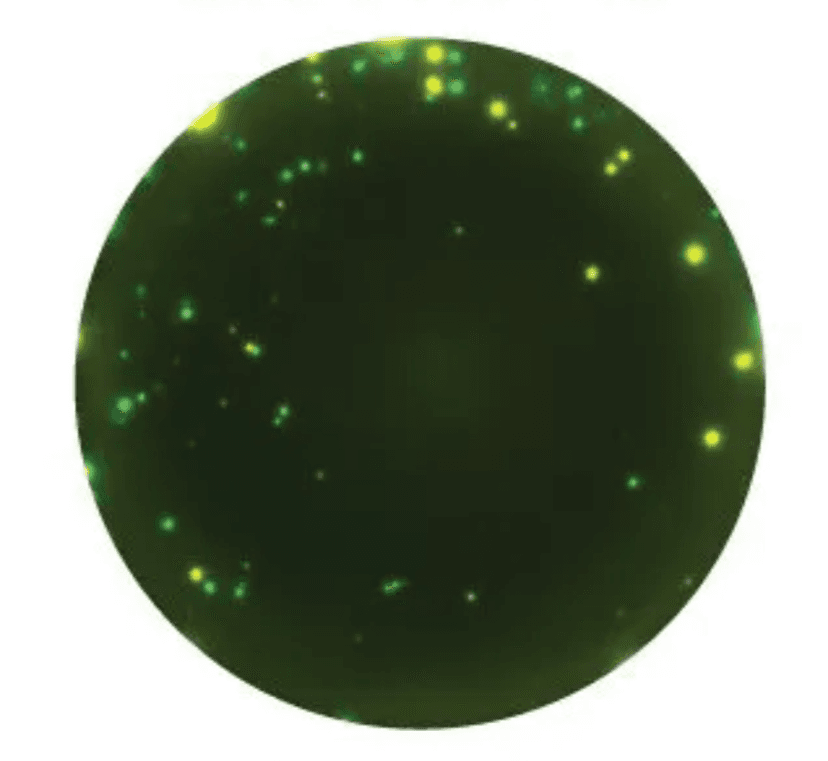
Immunoassays for vaccine research
Published: October 11, 2024
Updated: February 14, 2025
Authored by: Tyler Sandberg
ELISpot and FluoroSpot are some of the most used immunoassays for evaluating immune responses to vaccines. Known for their sensitivity, ease of use, and quantitative capabilities, these assays have become essential in vaccine research, from preclinical testing to clinical trials. ELISpot and FluoroSpot assays allow researchers to characterize immune memory, identify potential vaccine targets, and measure immune response durability by detecting and enumerating vaccine-specific T and B cell responses. In this post, we'll explore the fundamental role of these assays in vaccine development and how to implement them into your workflow.
Why use ELISpot and FluoroSpot for vaccine research?
ELISpot and FluoroSpot assays offer extreme sensitivity for identifying antigen-specific immune responses at the single-cell level. This makes both assays ideal for vaccine studies where detecting rare immune responses can be critical. They allow for:
- Quantitative analysis of antigen-specific cells
- Multi-analyte detection (FluoroSpot) for analyzing polyfunctional T cells
- Longitudinal immune monitoring
Both ELISpot and FluoroSpot assays are versatile, supporting applications from detecting cytokine secretion in T cells to analyzing antigen-specific B cells in response to vaccination.
-
Basic research: identify epitopes and antigens of interest as well as investigate adjuvant formulations. Use IFN-γ ELISpot to easily screen large numbers of T cell epitopes as well as the effectiveness of the tested adjuvants. FluoroSpot can add additional insights as to how the vaccine drives either Th1 or Th2 responses or resulting humoral responses. B cell ELISpot and immunoglobulin ELISAs can easily be adapted to identify antigen-specific B cells and humoral responses.
-
Pre-clinical studies: assess vaccine efficacy in animal models (mouse, rat, NHP, and more) to test potency, tolerability, optimize dosing, toxicity, and wanted or unwanted immunogenicity. Get more out of your samples with FluoroSpot by assessing multiple cytokines secreted by the responding T cells as well as evaluating the early acute B cell responses or class switching and later development of class-switched IgG+ memory B cells.
-
Clinical trials: monitor immune responses in human cohorts to evaluate desired immunogenicity and efficacy. Again, why not use FluoroSpot to get more data from samples by assessing helper T cell polarization and the generation of high-affinity memory B cells? Usually, longitudinal sampling is included to assess the development and longevity of immune responses.
-
Post-marketing surveillance: ongoing immune monitoring for lasting immune response, potential need for boosters, and immune memory with both T cell and B cell ELISpot or FluoroSpot.
Monitoring vaccine-specific T cells
In vaccine studies, both cellular immunity and the generation of high-affinity, neutralizing antibodies are commonly assessed primary outcomes. T cell ELISpot and FluoroSpot assays can detect cytokines like IFN-γ, IL-2, and TNF-α in response to stimulation with vaccine-derived peptides, offering insights into both the magnitude as well as the functionality of the T cell response. The use of FluoroSpot for characterizing polyfunctional T cells adds even more insights into the vaccine response and which T cell phenotypes are activated. We even designed a FluoroSpot kit perfectly suited for evaluating vaccine-induced T cell responses: FluoroSpot Path: Human immune monitoring (3‑color).
Different secretory profiles provide insights into the CTL or T helper cell response.
Example: COVID-19 vaccine research
During the COVID-19 pandemic, ELISpot and FluoroSpot were widely used to assess T cell responses to SARS-CoV-2. In one study by Jergovic et al., researchers used the FluoroSpot Flex: Human IFN-γ/TNF-α/IL-2/Granzyme B assay to analyze responses to SARS-CoV-2 variants, finding that three doses of mRNA vaccines provided enhanced T cell reactivity, even against variants like Omicron. Read more COVID-19 vaccine research papers.
The FluoroSpot Path: SARS‑CoV‑2 (S1scan+SNMO) Human IFN‑γ/IL‑2 has been used in multiple publications to enumerate SARS-CoV-2-specific T cells following vaccination or infection. This kit includes not only all the FluoroSpot reagents needed, but also specially designed peptide pools validated on real vaccinated and infected patient samples.
Monitoring vaccine-specific B cells
Analyzing B cell responses through ELISpot and FluoroSpot enables the detection and enumeration of antibody-secreting cells specific to the vaccine antigen. This is particularly helpful for viral vaccines, where humoral immunity plays a key role. The assays can be adapted to quantify memory B cells and plasmablasts, providing a comprehensive view of the early and later humoral immune response. Read more about using these assays in B cell profiling.
B cell ELISpot and FluoroSpot can be used to measure both acute and memory B cell responses. Both total and antigen-specific B cells can be enumerated.
Example: influenza and COVID-19 vaccines
Studies on influenza vaccines have shown that ELISpot is a sensitive measure of long-lived memory B cell responses, which may be more reliable than antibody titers alone. Similarly, ELISpot assays have been used in COVID-19 vaccine studies to analyze long-term memory B cell responses, that are crucial for understanding immunity against reinfection.
Vaccine research areas:
Influenza vaccines
Influenza vaccines are essential for controlling seasonal flu outbreaks and preventing severe illness, especially in vulnerable populations. ELISpot and FluoroSpot assays are frequently used in influenza vaccine development to evaluate T cell and B cell responses. By detecting cytokines such as IFN-γ and IL-2, ELISpot and FluoroSpot provide detailed information on T cell activation following vaccination or infection. FluoroSpot allows for the simultaneous assessment of multiple cytokine responses, capturing the full breadth of T cell functionality in response to influenza antigens like hemagglutinin (HA) and neuraminidase (NA). A study from 2014 even demonstrated FluoroSpot's superior sensitivity compared to flow cytometry methods in evaluating inflenza-specific responses.
For B cell responses, FluoroSpot can detect influenza-specific antibody-secreting cells (ASCs), providing insights into humoral immunity and the generation of protective antibodies. These tools have been especially useful in studying the immune response to seasonal vaccines versus experimental universal influenza vaccines, aimed at inducing broader and longer-lasting immunity. These assays help researchers optimize vaccine formulations and adjuvants, track immune responses over time, and identify correlates of protection, supporting the development of more effective influenza vaccines.
B cell ELISpot: Human IgG and IgA
Make sure to check out the Publication database to learn more about how others have used ELISpot and FluoroSpot in influenza vaccine research. And don't miss our new influenza FociSpot kits for measuring neutralizing antibodies against influenza A and B!
Malaria vaccines
Malaria vaccine development has been challenging, especially in low-prevalence regions where naturally acquired immunity is limited. ELISpot and FluoroSpot assays have become essential and affordable tools for evaluating malaria-specific T and B cell responses in vaccination studies. These assays are used to detect responses to key malaria antigens, such as circumsporozoite protein (CSP) and merozoite surface protein 1 (MSP1), often used in experimental vaccines with irradiated sporozoites or recombinant proteins. The high sensitivity of ELISpot allows for the detection of even low-frequency antigen-specific responses, making it a valuable tool for assessing vaccine efficacy in clinical trials and in populations with low natural exposure to malaria. Learn how the Mabtech IRIS and FluoroSpot were used in Kenya to study antigen-specific B cells and T cells in malaria-infected children.
Multiplex analysis at the single cell level of malaria antigen-specific B cells using the reversed B-cell FluoroSpot assay. Blue spots represent B cells specific to MSP-1(19), green spots; MSP-2, yellow spots; AMA-1 and red spots; MSP-3.
SARS-CoV-2 vaccines
As we already mentioned above, ELISpot and FluoroSpot played a key role during the COVID-19 pandemic in the rapid development of vaccines against SARS-CoV-2. Still today, the assays are being used to evaluate the longevity of immune memory induced by these vaccines and assess their effectiveness towards emerging variants. We are proud to have supported these global efforts and remain dedicated to helping researchers understand and combat this novel virus by developing tools such as peptide pools and neutralization assays to inform future vaccine design.
ELISpot was instrumental in the development of the COVID-19 vaccines and in characterizing immune responses following infection. Mabtech's ELISpot kits played a pivotal role in much of this research.
Find all the tools listed above to help answer your COVID-19 vaccine development questions below and read how others have utilized Mabtech solutions in their research.
Tuberculosis vaccines
Tuberculosis remains a significant global health challenge, with the need for an effective vaccine that can generate long-lasting immunity. ELISpot and FluoroSpot assays have played pivotal roles in TB vaccine research by providing detailed insights into T cell responses. Specifically, FluoroSpot assays allow for the simultaneous detection of multiple cytokines, like IFN-γ, TNF-α, and IL-2, which are associated with protective immunity against Mycobacterium tuberculosis. By analyzing polyfunctional T cell responses, researchers can better understand immune mechanisms that correlate with pathogen burden reduction, ultimately aiding the development of more effective TB vaccines that can stimulate robust and durable immune responses. We've even made a FluoroSpot kit ready for these kinds of studies: FluoroSpot Path: Human immune monitoring (3‑color).
Two-color FluoroSpot for the evaluation of TB-specific T cells using Mabtech TB PepPools.
Learn more about how Mabtech solutions have aided in TB research and vaccine development in the Tuberculosis collection in our Knowledge Hub and watch our webinar on TB below!
More resources
As vaccine research continues to evolve, ELISpot and FluoroSpot assays will remain important in both academic and clinical settings, helping researchers understand the complexities of immunity and drive the creation of novel vaccines and adjuvants.
For researchers looking to adopt these assays, we offer a range of kits and instruments designed to streamline vaccine research and provide accurate, reproducible results. We've compiled more resources on ELISpot and FluoroSpot in vaccine research and development below. And a webinar too! Check them out!
